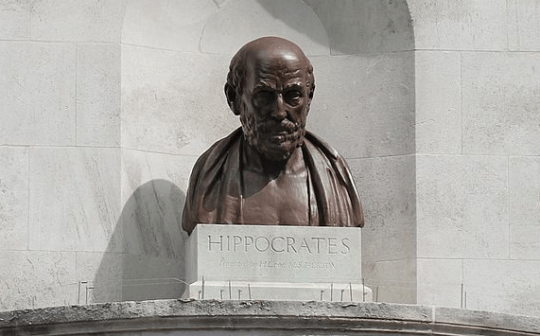
The Urgent Need for an Academic Revolution
by Nicholas Maxwell
For much of my working life I have argued, in and out of print, that we need to bring about a revolution in the aims and methods of science – and of academic inquiry more generally. Instead of giving priority to the search for knowledge, universities need to devote themselves to seeking and promoting wisdom by rational means, wisdom being the capacity to realize what is of value in life, for oneself and others, wisdom thus including knowledge, understanding and technological know-how, but much else besides. A basic task ought to be to help humanity learn how to create a better world.
Acquiring scientific knowledge dissociated from a more basic concern for wisdom, as we do at present, is dangerously and damagingly irrational.
Natural science has been extraordinarily successful in increasing knowledge. This has been of great benefit to humanity. But new knowledge and technological know-how increase our power to act which, without wisdom, may cause human suffering and death as well as human benefit. All our modern global problems have arisen in this way: global warming, the lethal character of modern war and terrorism, threats posed by modern armaments (conventional, chemical, biological and nuclear), vast inequalities of wealth and power round the globe, rapid increase in population, destruction of tropical rain forests and other natural habitats, rapid extinction of species, even the AIDS epidemic (AIDS being spread by modern travel).
All these distinctively modern crises have been made possible by modern science dissociated from the rational pursuit of wisdom. If we are to avoid in this century the horrors of the last one – wars, death camps, dictatorships, poverty, environmental damage – we urgently need to learn how to acquire more wisdom, which in turn means that our institutions of learning become effectively, rationally, devoted to that end.
The revolution we need would change every branch and aspect of academic inquiry. A basic intellectual task of academic inquiry would be to articulate our problems of living (personal, social and global) and propose and critically assess possible solutions, possible actions, policies, political programmes, philosophies of life. This would be the task of social inquiry and the humanities. Tackling problems of knowledge would be secondary. Social inquiry would be at the heart of the academic enterprise, intellectually more fundamental than natural science.
On a rather more long-term basis, social inquiry would be concerned to help humanity build cooperatively rational methods of problem-solving into the fabric of social and political life, so that we may gradually acquire the capacity to resolve our conflicts and problems of living in more cooperatively rational ways than at present. Natural science would change to include three domains of discussion: evidence, theory, and aims – the latter including discussion of metaphysics, values and politics. Pursued for its own sake, science would be more like natural philosophy, intermingling science, metaphysics and philosophy as in the time of Newton.
Academic inquiry as a whole would become a kind of people’s civil service, doing openly for the public what actual civil services are supposed to do in secret for governments. Academia would actively seek to educate the public by means of discussion and debate, and would not just study the public. Above all academia, internationally, would be devoted to helping humanity learn what we need to do in response to the impending crisis of global warming. The intellectual/institutional revolution, from knowledge to wisdom, that I have been arguing for, has dramatic consequences both for the internal structure and organization of academia, and for its relationship with the rest of the social world.
These changes are not arbitrary. They all come from demanding that academia cure its current structural irrationality, so that reason – the authentic article – may be devoted to promoting human welfare.
The upshot is a new kind of inquiry – wisdom-inquiry – of which natural science forms an integral part. Wisdom-inquiry puts into the hands of humanity, for the first time, an instrument of learning rationally designed to help us realize what is of most value to us as we live – rationally designed to help us make progress towards a good world, or as good a world as possible.
Has my project to transform universities met with success? The answer, I have to confess, is No. I have not even managed to get the idea across to my fellow philosophers, let alone to the rest of my academic colleagues. I have failed, even, to get philosophers to take seriously, as a fundamental problem of the discipline, the question: What kind of inquiry can best help us make progress towards a civilized world?
Viewed from another perspective, however, my call for a revolution, for the implementation of wisdom-inquiry, has been astonishingly successful – as I make clear in my contribution to Handbook On The Knowledge Economy Volume Two (Edward Elgar). During the last ten to twenty years, all sorts of changes have taken place in academia that amount to putting aspects of wisdom-inquiry into practice – even if in complete ignorance of my work. In universities all over the world, departments, institutions and research centres have been created actively concerned with problems of social policy, climate change, environmental degradation, poverty, war and peace, community health and medical ethics.
Scientists, especially climate scientists, nowadays actively seek to engage with politicians, the media and the public about issues that arise from their scientific research. At my own university, for example – University College London – there are some 140 research institutes and centres, some only recently founded, many interdisciplinary in character, devoted to such themes as ageing, cancer, cities, culture, public policy, the environment, global health, governance, migration, neuroscience, and security. In addition, in the last few years, the attempt has been made to organize research at UCL around a few broad themes that include: global health, sustainable cities, intercultural interactions, and human wellbeing. This is being done so that UCL may all the better contribute to solving the immense global problems that confront humanity. There is even an input, here, from my own work. On the UCL website there is a policy document entitled “The Wisdom Agenda.”
Nicholas Maxwell

Nicholas Maxwell has devoted much of his working life to arguing that we need to bring about a revolution in academia so that it comes to seek and promote wisdom and does not just acquire knowledge. He has published six books on this theme, and numerous papers which can be found here.
His work has been subjected to critical scrutiny in L. McHenry, ed., Science and the Pursuit of Wisdom: Studies in the Philosophy of Nicholas Maxwell (Ontos Verlag, 2009). For nearly thirty years he taught philosophy of science at University College London, where he is now Emeritus Reader in Philosophy of Science. He has given lectures at Universities and Conferences all over Britain, Europe and north America, and has taken part in the BBC Programme “Start the Week” on Radio 4, and an “Ideas” programme on Canadian Broadcasting Corporation. In 2003 he founded Friends of Wisdom, an international group of people sympathetic to the idea that academic inquiry should help humanity acquire more wisdom by rational means. More information about his life and work can be found in his recently published intellectual autobiography.